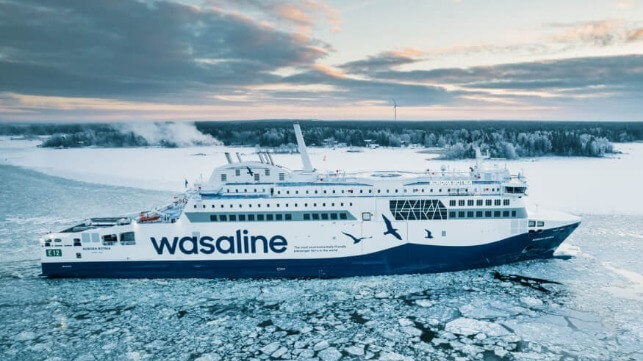SEA-LNG Predicts Methane Slip Will Be Eliminated Within the Decade

SEA-LNG, the trade group formed eight years ago to demonstrate the benefits of LNG as a marine fuel continues to highlight the significant progress being made to eradicate methane slip within the maritime sector. In its latest forecast, the group now says with continued collaborative efforts across the value chain, methane slip (the release of unburnt methane gas) will be eliminated for all engine technologies within the decade.
A broad range of initiatives across the industry are showing strong progress SEA-LNG highlights. They point out that methane slip has been eradicated for the LNG dual-fuel engine technologies used in the heavy-duty vehicle sector and that the new generations of 2-stroke diesel cycle engines used in the maritime sector have effectively eliminated slip, which is critical when you consider that three-quarters of the LNG-fueled vessel orderbook will use these engines. DNV calculates there are 500 LNG-fueled vessels on order for delivery in the next five years.
“There is universal agreement that the science is understood, and we have the necessary tools and technology to abate methane emissions, it is the final elements of the engineering that are being worked on,” asserts Peter Keller, Chairman of SEA-LNG. “As LNG continues to gain widespread recognition as the current practical and realistic alternative fuel pathway, it is reassuring to see growing evidence that the challenge of methane slip will be eliminated within this decade.”
Current initiatives are focusing on low-pressure engine technologies where methane slip remains a challenge, acknowledges SEA-LNG. The trade group highlights however that manufacturers have already cut the levels of slip from low-pressure 4-stroke engines by more than 85 percent over the past 25 years.
SEA-LNG cites a broad range of initiatives that are showing strong progress while research it supported with SGMF, and was conducted independently by Sphera, showed LNG can cut GHG emissions by up to 23 percent including methane emissions across its entire lifecycle, Well-to-Wake, when compared to fuel oil.
Among the programs they highlighted is an EU-funded Green Ray where Wärtsilä piloted technologies on the RoPax ferry Aurora Botnia that resulted in further methane slip reductions of up to 56 percent using dual-fuel low-pressure four-stroke engines. ROTOBOOST, a global hydrogen technology company, has developed a unique pre-combustion carbon removal system that can be equipped onboard LNG-fueled vessels, cracking the methane molecule into hydrogen and solid carbon. MAMII (Maritime Innovation Initiative) has begun a process of piloting exhaust stack methane abatement technologies while Maran Gas also installed as a demonstration a methane measuring technology and an after-treatment abatement system. MAN Energy Solutions is also working on developing an after-treatment technology to reduce methane slip from its four-stroke engines.
These efforts, says Keller, are providing further confidence to shipowners who continue to adopt LNG in the efforts toward decarbonization. Clarksons’ data for example shows that 109 LNG dual-fuel vessels were ordered up to June 2024 with more than 550 LNG-fueled vessels in operation, a number expected to double by 2027. Keller says the technology is providing confidence with the transition to net-zero emissions through bio-methane and e-methane also helping to “future-proofed” vessels ordered for the next 25 to 30 years.
Despite this progress, a group of environmentalists continues to call for a transition away from LNG and carbon-based methane. Seven groups launched the “Beyond Methane Pledge,” an initiative seeking to halt the expansion of LNG and other methane-based fuels and phase out its use in all sectors globally.

that matters most
Get the latest maritime news delivered to your inbox daily.
“To achieve crucial climate targets, we need to focus on investing resources in true zero-emission shipping solutions,” said Delaine McCullough, President of Clean Shipping Coalition, one of the groups supporting the Pledge. “Given their long life, immediate investments in vessels and supportive infrastructure can limit future choices, so we must get them right. To put shipping on a pathway to zero emissions by 2050 we need political interventions like the methane pledge, not only to better regulate methane but also to improve the economic viability of near-zero and zero-GHG fuels and technologies.”
The pledge calls upon key industry leaders, including shipowners, cargo owners, ports, cities, policymakers, energy producers, suppliers/utilities, transporters, and financial institutions, to take decisive action by committing to a sustainable energy future. The pledge also encourages supporters to become pledge champions, calling for immediate action on methane emissions and halting investments in the LNG supply chain, including marine fuels and shipping.
